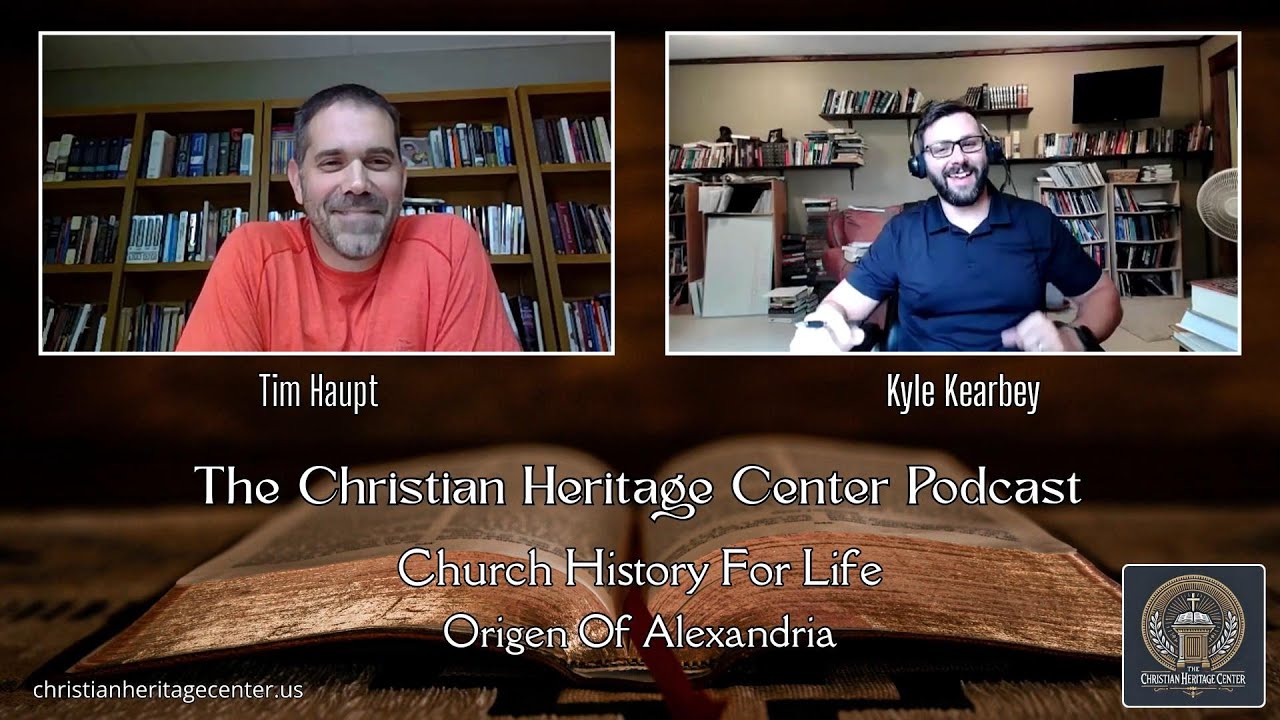Martyn Lloyd-Jones believed that a minister’s reading life was central to his preparation as a preacher. In Preaching and Preachers (chapter 9), he devoted more space to this subject than to prayer or self-discipline, underscoring how vital he considered reading to the preacher’s formation, and obviously his preaching. For Lloyd-Jones, a minister who sought to prepare himself as a preacher, had to cultivate a disciplined and balanced reading life.
The Context of Lloyd-Jones’s Counsel
Lloyd-Jones discusses this in Chapter 9, titled “The Preparation of the Preacher”.
He states the following concerning the importance of this kind of preparation:
The preacher’s first, and the most important task, is to prepare himself, not his sermon. Any man who has been in the ministry for any length of time will agree wholeheartedly with me concerning this. It is something that one has to learn by experience. At first, one tends to think that the great thing is to prepare the sermon, and the sermon, as I have been saying, does indeed need most careful preparation. But altogether more important is the preparation of the preacher himself.[1]
Dr. Lloyd-Jones goes on to explain what he means by this. This kind of preparation is not merely sermon craft, but the formation of the man himself. It involves self-discipline for the sake of godliness, usefulness, order, and productivity. It means becoming a man of prayer in its many forms, and continually cultivating a rich reading life. It is the redemptive cultivation of habits, routines, physical tendencies, the mind and the heart, and our time.
In short, it is giving oneself wholly to the calling, consecrating the whole of self and life to Christ, according to the person God has made you to be.
This is the context in which Lloyd-Jones gives his guidance for the ministers’ reading life. It is important to understand where it is situated because it helps inform its purpose and Lloyd-Jones’ thinking on the subject.
For Lloyd-Jones, the reading life of the minister plays a huge role in the formation of the man as a preacher. In this chapter, he dedicates nearly eleven and a half pages to the reading life of the minister, whereas he gives two and a half pages to the subject of prayer, and the same to self-discipline, and then one page to music. We must conclude that he views it as a primary means of self-formation. The reading life of the minister is to have a prominent place in their life; it is by no means optional for the man of God who is conscious of this call in his life.
The goal of this reading guide is to aid ministers in cultivating and thinking through their own reading life.
General Principles for Applying Lloyd-Jones’s Reading Plan
Throughout this chapter, and indeed throughout the whole book, Lloyd-Jones maintains and puts forward several general principles for our thinking on such things. Though not all of them are directly referenced in his reading guidance for ministers, I feel comfortable applying them to it, simply due to the fact that they are close in context, being in the same chapter, and they are reiterated throughout the book. They seem to be principles maintained by Lloyd-Jones on a variety of subjects.
Flexibility, not rigid rules
He emphasizes the importance of rejecting absolutes when prescribing routines, discipline, and structure. He says, “I want to add a word here which to me is important, but which may not be acceptable to all. I am an opponent of universal set rules for all.”[2]Now, why does he state such a thing? Because he recognizes that all men are different, and they have different constitutions. Some men may function well, and even flourish under certain structured programs; however, others may be run into the ground.
Thus, the reading program which he puts forward should be applied with discernment and flexibility, not rigidity and required uniform adherence and universal standards.
Self-awareness
He also emphasizes the importance of personal awareness regarding one’s own bodily constitution, personality, moods, needs, and temperament.
It is of great importance to Lloyd-Jones for those called to preach to know themselves thoroughly. This requires critical thinking concerning one’s own life, schedule, and personality. It demands objective and prayerful consideration of one’s personal inclinations and physical, emotional, and spiritual well-being. Surely, we see his medical training manifesting itself in this emphasis. Because of this training, he more clearly sees the significance of these underlying realities on a man’s ministry, success, failures, and perseverance in the Christian Ministry. He rightly sees how they affect one’s life and how ignorance of them is disastrous.
The natural outcome is that if one rightly understands who they are, they will then be able to apply the habits and reading parameters laid out in an appropriate and relevant way. In a sense, a man must be able to discern what is “appropriate” for him to read at the moment based on the current condition of his various mental, physical, and spiritual compositions. Many pastors do not read because they fail so often at reading! Why is this? Because they have not discerned rightly what they need to read at the moment. Lloyd-Jones is a proponent of appropriating habits, discipline, routines, structure, and the disciplines of grace to one’s life in a way that’s consistent with who you are and what your current situation is.
Always Preparing
Additionally, he emphasizes the continual nature and necessity of a man preparing himself for preaching. He states, “What is the process of preparation? I would lay it down as the first postulate that he is always preparing. I mean that literally. That does not mean to say that he is always sitting at a desk, but he is always preparing…He has times of absence from his normal work, he has vacations, but because of the nature and character of his calling, he is never free from his work.”[3]Clearly, Lloyd-Jones sees the ministry as all-consuming and comprehensive in one’s life. The natural implication of this is that one must always be preparing and building oneself up to fulfill the calling upon one’s life. Yes, there may be periods of time in which he is not performing certain duties or responsibilities associated with the work of preaching and ministry; however, this does not negate the necessity of continually readying oneself for this high calling. Later, Lloyd-Jones references the fact that he typically takes a single large volume or works with him on vacation to read. This must have application to the minister’s reading life. The minister must always be preparing himself by always cultivating his reading life!
Balance
Also, he emphasizes the importance of maintaining balance in one’s reading life.
He states that, “I would emphasize strongly the all-importance of maintaining a balance in your reading. I cannot stress this too much.”[4]The main reason for this emphasis is because of man’s natural inclinations and personal affinities. He says, “Because of our natural differences, we all have our prejudices and preferences…”[5]and these can lead to dangerous imbalances and over-realizations in a minister’s life, where they are not well-rounded in their spirituality, thinking, or ministry. This will negatively impact their preaching.
Maintaining a balance in one’s reading life counteracts these dangers. This is why he reminds us, “I maintain that one should always be reading along these differing lines daily.”[i] He goes on to state this is not impractical either, demonstrating that what we read, and when we read it, has a real impact on our daily routines, and even our sleep.
When applying the reading plan from Lloyd-Jones, the wise minister must ensure a proper balance in variety, type of literature, topic, and realm of reading. He must refuse to be one-dimensional in his reading life.
Discipline
Lastly, the cultivation of a minister’s reading life requires discipline.
This is clear in the fact that he spends an entire section on self-discipline in chapter 9. He says the minister must be very careful to maintain a general discipline in his life. There are many dangers in the life of a minister.”[6] He applies this mostly to the minister’s schedule, and the importance of making the most of one’s time, eating, and being sure to personalize one’s routine and habits according to how the Lord has made the individual. However, this ministerial discipline applies to the reading life as well, Lloyd-Jones states, “There is ample material; indeed, the preacher’s great difficulty is to find sufficient time for reading; it is a constant battle.”[7]The Doctor knows that it is hard work to cultivate and maintain an appropriate and beneficial reading life as a minister. It is something a man must work for and discipline himself in, if he is to benefit and be prepared by it. Often, reading is hard, and oftener, strategic reading is even harder!
Having laid out certain general principles, we can go on to consider four categories of reading which Lloyd-Jones says ought to compose the minister’s reading life.
The Four Categories of a Minister’s Reading Life
Necessary Reading
First, there is a necessary reading the minister must give himself to. For Lloyd-Jones, Bible reading is as essential for the preacher as prayer. He says, “the next essential in the preacher’s life- the reading of the Bible”[8]. He emphasizes the regularity and expected nature of it by stating it is “obviously”[9]something to be done daily. Quickly, he addresses dangers and concerns related to reading simply according to likes and dislikes. The scriptures should have such a place in the minister’s life that the minister must read the scriptures in a systematic manner, and they should read through the entire Bible annually, at a bare minimum. Lloyd-Jones means the whole Bible once per year, and the Psalms and New Testament twice, and he clearly says that this “should be the very minimum of the preacher’s Bible reading.”[10]The recommended resource he puts forward is the McCheyne Bible Reading Plan. It should be noted that Lloyd-Jones followed this particular Bible reading plan personally for over fifty years. On his deathbed, when he was weak to the point of not being able to speak, he had his wife and daughter read aloud the assigned portions to him. It had an important place in his life and spiritual well-being.
It is implied in the following paragraph that he feels it appropriate for ministers to study with more depth particular portions, books, or subjects in accompaniment of their annual systematic Bible reading. This is how he deals with general Bible reading in contrast to studying scripture. He obviously places a great deal of importance upon the preacher’s Bible reading habits. In his mind, and rightly I believe, the preacher must be disciplined enough, and set aside adequate daily time to give himself to reading and understanding the Bible.
He goes on to provide a warning against what I would call professional reading, where you simply read to find texts. Then he provides several practical elements for ministers in their Bible reading. Practically, first, he advises preachers that when they come to a text which stands out to them, they must “Stop immediately, and listen to it…Stop reading at once, and work on this statement that has struck you in this way.”[11]He then encourages the reader to pursue this text or statement and develop a bare bones sermon outline, and to jot down details that stand out. The next practical help is to keep a notepad on hand or close by to collect useful notes, outlines, and store tidbits for future use. If the preacher does this, they will never lack a sermon idea. He says very helpfully, “A preacher has to be like a squirrel and has to learn how to collect and store matter for the future days of winter.”[12]
Lloyd-Jones views Bible reading and study as foundational disciplines to being a prepared man for preaching. The preacher must be a man of the Word. In a sense, everything else is built on top of this, especially the rest of the minister’s reading life. Significantly, Lloyd-Jones is clear about the quantity he believes to be the basis for those called to preach, an annual systematic Bible reading plan. He believed that anyone called to preach must have a working knowledge of the entire Bible, its characters, events, developments, and the general framework of biblical theology. He knew that broad scriptural knowledge was necessary for sermon preparation and preaching. Scripture must be informing and molding the preacher’s mind as he prepares and preaches the Word of God to the People of God.
Minister, systematically read the scriptures annually, and find practical ways to support future messages and ministry while you read. You will become a better preacher as you become better acquainted and more familiar with the scriptures. Bible intake is essential and non-negotiable for those called to preach the Word. Prioritize the Word.
Devotional Reading
Next, the minister’s reading life should involve devotional reading. Lloyd-Jones goes on to say, “Next in order I would say is…’ devotional reading’.”[13]He defines this as the “type of reading which will help you in general to understand and enjoy the Scripture, and to prepare you for the pulpit.”[14]I think it would be fair to categorize this as reading for edification, illumination, and experiential religion. This is why he later states, “as you read them you find that they not only give knowledge and information, they at the same time do something to you”[15]. He has in mind reading that stirs the soul and aids the experience of grace in the reader. The immediate examples he provides are the Puritans and their works. The works he’s referring to can be soothing blessings to the minister in times of weary labors and spiritual battles. Lloyd-Jones says, “Richard Sibbes, who was a balm to my soul at a period in my life when I was overworked and badly overtired, and therefore subject in an unusual manner to the onslaughts of the devil…”[16]. He appears to be thinking of reading, which brings grace to wounded souls, reading which builds up the heart in trying times, and warms the soul when coldness sets in.
Other literature suitable for this category would include sermons. Lloyd-Jones highlights Edwards’ sermons, which were of great help to him early in his ministry. Additionally, material related to the Great Awakening is mentioned as helpful. MLJ regularly declared, “I’m an eighteenth-century man”, which manifestly expresses his affinity and preference for this period, especially the preaching. This must have been reflected in his reading life as well. It is good for ministers to read old sermons, to be impacted by them, and to learn from them. Earlier, he states, “in the eighteenth century, Jonathan Edwards, Whitefield, the Wesleys, Rowlands, and Harris were all great preachers. It was an era of great preaching.”[17]
Lloyd-Jones believed the eighteenth century, in particular, was a good place for ministers to visit often to have their hearts warmed and inspired for wherever they currently served. He also says, “Church history will tell you about the great revivals in the history of the Church. I know of nothing, in my own experience, that has been more exhilarating and helpful, and that has acted more frequently as a tonic to me, than the history of Revivals.”[18]He openly confesses the benefit he receives from reading about revivals.
He adds nuance to this. The minister must know what kind of experiential reading he needs at any given time. He says, “The preacher has thus to choose his reading judiciously…”[19], and this is because of the various moods and motions of the minister’s soul, and spiritual state. Pastors don’t always need the same thing, depending on the state of their hearts. Reading must be appropriate to the pastor’s current condition. For instance, if a pastor is down due to difficulties in the ministry, he needs to be brought up; however, following a seemingly successful Lord’s Day of preaching, the minister may be up and need to be brought down. Thus, what they need in their soul varies, and their reading must also.
There is a vast number of options available for ministers to draw from for this type of reading. They could obtain Puritan Paperbacks sold by Banner of Truth, or the Puritan Treasure Series by Reformation Heritage Books. Not to mention historical sources online, which are widely available. For some, older English is more difficult to read and may be a hindrance to benefiting from such works. If this is the case, find a more modernized version, or try reading it out loud; sometimes this can help a great deal. The point is simple: read for the edification of your own soul in its various and fluctuating states. Read for spiritual growth and experience. The benefits afforded a minister through such reading are incalculable and unlimited.
Intellectual Reading
Also, the effective minister ought to read for his mind. Lloyd-Jones says, “Time must be found for reading, and we turn now to the more purely intellectual type of reading.”[20]He gives three primary categories in this type of reading. MLJ sees the great importance of continually stimulating our minds with theology and continually developing our ability to think theologically. The latter seems to be the primary aim of this portion of the chapter. The next category he puts forward is church history, in which he also includes biographies and journals from giants of the faith. The last main category of this section is apologetic reading, which he explains is essentially trending topics in evangelicalism of the day, or the world and culture. He goes on to explain that this should even include denominational topics.
It is interesting to consider why he would categorize these in this way, especially church history and biography. Why are these spoken of as intellectual reading, and not devotional? This is interesting, particularly since he references them as “tonic”[21]for his own spiritual wellbeing, and “antidotes”[22]to depression and discouragement. For Lloyd-Jones, it seems these types of reading primarily and directly address the mind, and even more, one’s perspective.
For example, Church history, biographies, and journals aren’t simply narratives to be “felt”. They must be evaluated critically. The preacher must ask: What were the doctrinal emphases? How did cultural context shape this person? Where do I see strength and weakness? This kind of reading forms judgment, sharpens discernment, and builds an intellectual framework. In a sense, this type of reading teaches the preacher how to think. It also cultivates breadth in comprehension and perspective. The minister needs to have an understanding which transcends his own situation, time, age in which he lives, and culture. He needs to have a transcendent understanding not just regarding the world in which he lives but also regarding the church in which he ministers. If a minister is to be relevant in his application of God’s Word, he must understand the issues the sheep are dealing with. He must understand what they are thinking about. Lloyd-Jones says, “All this is necessary to help the preacher to assess the people who are going to listen to him. He must know something about their background and their outlook, and what they are thinking, what they are reading, and the influences that are being brought to bear upon them.”[23]. This reading helps the pastor get into the people’s shoes and thus apply God’s Word appropriately.
The minister must always stretch his mind for the purpose of ministerial progress and ongoing relevance with his people. This is accomplished largely by cultivating one’s reading life. For the modern minister, this very well may include reading and staying up to date regarding social media and trends that are propagated via such platforms. It must be recognized that a large majority of church members and congregants are obtaining their news and understanding of the world through social media platforms. Is it possible to understand the struggles of our people without knowing what is filling their minds?
General Reading
Lloyd-Jones addresses one more area of the pastor’s reading life, general reading. He says, “General reading is also important.”[24]And by this, he seems to mean topics and types of literature that aren’t directly related to the ministry or even from an evangelical Christian perspective. This would include reading in various fields of study, such as secular history, special interest, general affairs, or annual lectures which may be from a non-evangelical perspective. It may include poetry, literature, or even newspapers.
Now, whereas he instructed pastors to read intellectually both for the sake of the pastor and the people, he encourages general reading largely for the benefit of the pastor himself. He says, “…for the sake of relief for the mind. The mind needs rest. The man who is too tense and who overtaxes his mind will soon get into trouble. The mind must be given relief and rest. But to relieve your mind does not mean that you stop reading; read something different. Read something quite different, and as you do so, the mind can relax.”[25]Interestingly, he prescribes more reading as a means of resting and helping the mind. For MLJ, mental relief was not something passive, but active. It meant finding pleasure and recreation by actively engaging the mind in a task that is unrelated to the ministry, yet that the minister may or may not be interested in. It is a stimulus that leads to relaxation of the mind.
So, if we were to define this aspect of reading life, it would be to read broadly, beyond that which is directly ministry related, and to be exposed to diverse fields of study and thought for mental relief, active recreation, and pleasure.
There must be nuance in our approach to general reading, however. Lloyd-Jones is clear and manifests his wisdom when he states, “Do not give too much of your time to it. That is the danger. You will always be fighting in this respect. There will always be the tendency to go to extremes.”[26]Meaning, this type of reading must be secondary and controlled in the minister’s life.
Having identified the four categories of reading that make up the minister’s reading life, we must consider how each of them contributes to a larger purpose, which is the preparation of the preacher.
The Purpose of Reading in the Minister’s Life
In typical fashion, Lloyd-Jones begins this section with the negative. He clarifies what the purpose is not. It is not “primarily to get ideas for preaching.”[27]. Meaning, the minister should not cultivate his reading life simply to retrieve material to utilize in his next sermon, or as a means of gleaning details for future usage. We must remember the context, this is within the chapter on the preparation of the man, not the “Character of the Sermon”, or the “Shape of the Sermon”. For Lloyd-Jones, reading has to do with the development and formation of the man himself. This said, he certainly allowed for this element to be present in a minister’s reading when done ethically. For him, this was not the “primary object of reading”[28]. Ministers must not simply be information-gatherers in their reading.
So, what’s the purpose? For MLJ, it is information that acts as a stimulus in the minister’s life. It is meant to impact and change the man in his thinking. Reading is meant to “make one think.”[29]The goal is for knowledge and information to be imbibed and thus influence the man himself. Change and growth are in view.
For instance, if we consider the areas of reading MLJ prescribes, we can also see the areas he feels are important for the preacher to continually grow in.
He prescribes necessary, devotional, intellectual, and general reading because ministers need to continually be stimulated. First, they need to be stimulated concerning fidelity to scripture and their core convictions, thus he prescribes necessary reading. Spiritual growth depends on it. Second, he sees the need for the preacher to have his affections moved regularly, so as not to be cold; thus, he commends devotional reading. Third, he sees the need for ministers to be stimulated in their minds to serve logical thinking, theological insight, rigor, balance, and to maintain historical awareness. Accordingly, he prescribes intellectual reading. Lastly, he sees the need for ministers to be stimulated in their minds for pleasure and relief. Thus, he prescribes general reading. Thinking about MLJ’s reading plan, this helps us see the practical purpose behind it. Growth in various areas of the minister’s life.
Conclusion: The Preacher as a Reader
Martyn Lloyd-Jones’s counsel on the reading life of the minister stands as a relevant reminder that preparation for preaching is first and foremost the preparation of the man himself. Reading—balanced, disciplined, and pursued with discernment—is essential to his calling. It is through Scripture, devotional works, theological and historical study, and even general reading that God shapes His servant for the pulpit. Such reading forms the preacher’s mind, nourishes his heart, steadies his soul, and broadens his vision. In giving himself to this lifelong discipline, the minister is not merely gathering information, but being shaped into a vessel fit to proclaim Christ with clarity, conviction, and power through his own personality.
Brothers, be a reader. Take up the Scriptures daily. Walk with the saints of old in their writings. Sharpen your mind with truth and let your heart be stirred by the great works of God in history. Give yourself to growth. Know yourself, and the times. Don’t allow imbalance, neglect, or laziness to rob you of this holy duty. Your people need more than sermons—they need a man of God whose life has been shaped by the Word and by truth. So cultivate your reading life with diligence and prayer, and when you enter the pulpit, you will bring not only words, but the weight of a life formed by God’s truth.
[1] Martyn Lloyd-Jones, Preaching and Preachers, 40th Anniversary Edition (Grand Rapids: Zondervan, 2011), 178.
[2] Lloyd-Jones, Preaching and Preachers, 179.
[3] Lloyd-Jones, Preaching and Preachers, 178.
[4] Lloyd-Jones, Preaching and Preachers, 189.
[5] Lloyd-Jones, Preaching and Preachers, 189.
[6] Lloyd-Jones, Preaching and Preachers, 178.
[7] Lloyd-Jones, Preaching and Preachers, 188.
[8] Lloyd-Jones, preaching and Preachers, 183.
[9] Lloyd-Jones, preaching and Preachers, 183.
[10] Lloyd-Jones, Preaching and Preachers, 184.
[11] Lloyd-Jones, Preaching and Preachers, 184.
[12] Lloyd-Jones, Preaching and Preachers, 185.
[13] Lloyd-Jones, Preaching and Preachers, 186.
[14] Lloyd-Jones, Preaching and Preachers, 186.
[15] Lloyd-Jones, Preaching and Preachers, 186.
[16] Lloyd-Jones, Preaching and Preachers, 186-7.
[17] Lloyd-Jones, Preaching and Preachers, 31.
[18] Lloyd-Jones, Preaching and Preachers, 129.
[19] Lloyd-Jones, Preaching and Preachers, 188.
[20] Lloyd-Jones, Preaching and Preachers, 188.
[21] Lloyd-Jones, Preaching and Preachers 129.
[22] Lloyd-Jones, Preaching and Preachers, 129.
[23] Lloyd-Jones, Preaching and Preachers, 189.
[24] Lloyd-Jones, Preaching and Preachers, 193.
[25] Lloyd-Jones, Preaching and Preachers, 193.
[26] Lloyd-Jones, Preaching and Preachers, 193.
[27] Lloyd-Jones, Preaching and Preachers, 191.
[28] Lloyd-Jones, Preaching and Preachers, 192.
[29] Lloyd-Jones, Preaching and Preachers, 192.




